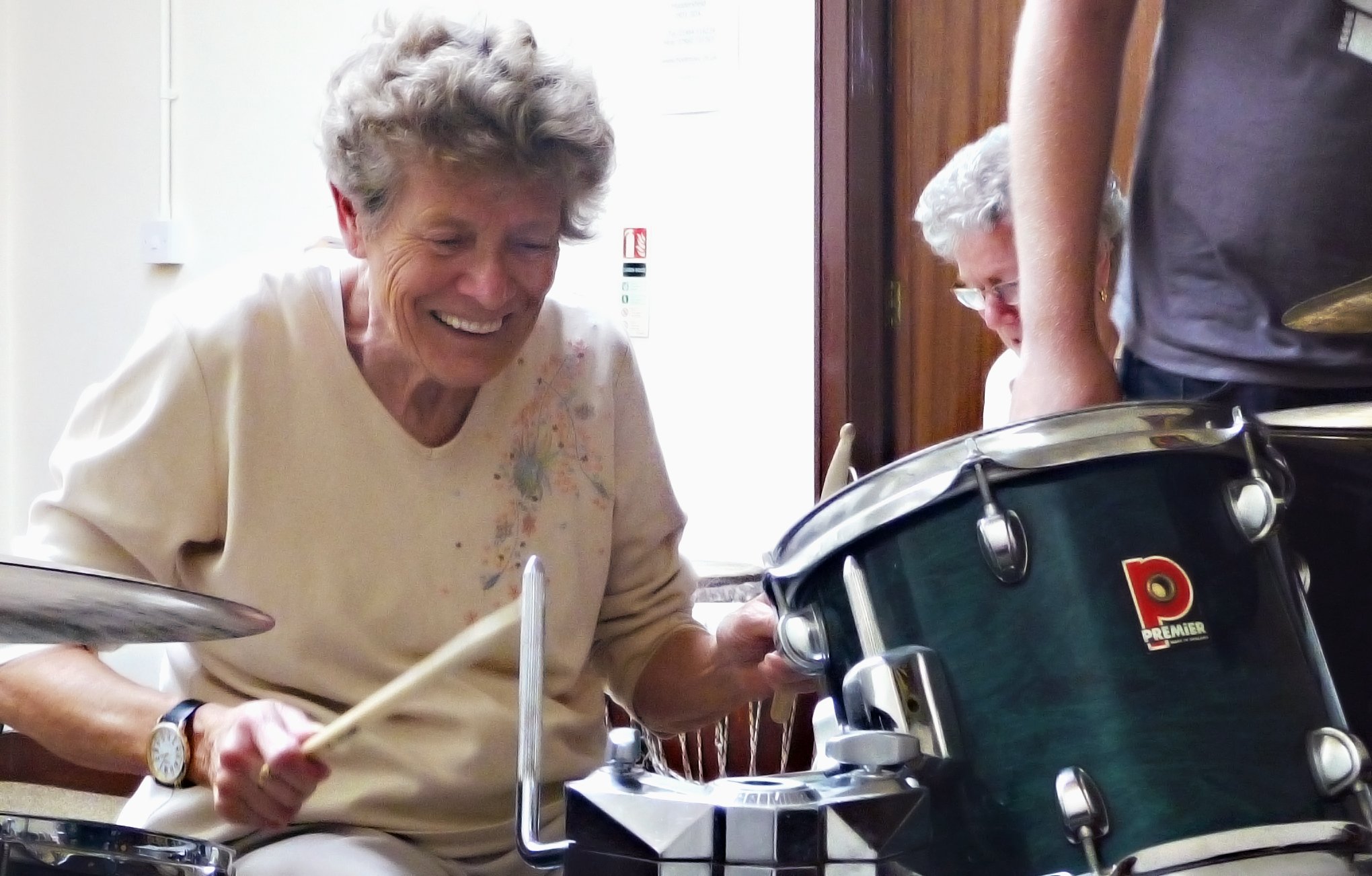
Photo: NCVO London CC BY 2.0
People with dementia need ‘universal access to music’, report says
New research finds listening to music helps tackle anxiety, depression and agitation among people living with dementia, and calls for a dedicated music and dementia task force.
The potential of music to empower and soothe people living with dementia has been outlined in a new report, which calls for increased collaboration between politicians, technology companies, arts organisations and the healthcare sector to make access to the artform easier.
The evidence roundup, produced by independent think tank the International Longevity Centre (ILC-UK), concludes music can help minimise agitation, depression and other symptoms of dementia, whilst helping to increase social interaction.
It also finds evidence of a “memory bump”, in that people with dementia retain the clearest memories for music they enjoyed and heard between the ages of 10 and 30.
The report authors use the conclusions to urge music streaming services such as Spotify to offer limitless streaming to people with dementia at reduced prices or for free. They also urge the Government to create an independent, non-political Ambassador for Dementia and Music, who would lead a dedicated task force to deliver “universal access to music” for people with dementia.
“People with dementia often live in a silent world, yet music can bring a person back to life,” said Neil Utley of the Utley Foundation, one of the funders of the research.
“The ability to connect to music is an innate aspect of being human; having a diagnosis of dementia need not undermine this.”
Growing concern
Produced by ILC-UK’s Commission on Dementia and Music, the report examines the existing offer and the future potential for using therapeutic music with dementia.
The number of people living with dementia is expected to reach one million by 2025, and many of these will suffer neuropsychiatric symptoms, such as agitation, depression, apathy and anxiety. The annual cost of dementia to the UK is £26.3bn and this is expected to exceed £50bn over the next three decades.
The researchers conclude music and dementia is currently the terrain of devoted advocates operating in a “complex and poorly coordinated ecosystem”. They found specialist music therapy provision is “sporadic” and estimate that good-quality arts and music provision is currently available in just 5% of care homes.
“We want to see provision reaching all people with dementia, including the most vulnerable individuals who may not have family or friends to speak on their behalf,” the authors add.
Recommendations
The report concludes the sector would benefit from increased funding, which should be supported by more research into the cost effectiveness of such programmes – recognising the tight budgets of local authorities and clinical commissioning groups – and more investment from philanthropic trusts.
It also calls for a large-scale campaign to raise awareness of the value of music interventions, and a national database to summarise local provision for people living with dementia.
Sally Bowell, Research Fellow at ILC-UK, added: “Music should not just be considered a nice-to-have, or an ‘add-on’. Music has tangible, evidence-based benefits for people with dementia, such as helping to minimise the behavioural and psychological symptoms of dementia, tackling depression and anxiety, and, importantly, helping to improve quality of life.
“We want to raise awareness of these important benefits and rally organisations and individuals alike to help champion access to music for people with dementia.”
Join the Discussion
You must be logged in to post a comment.